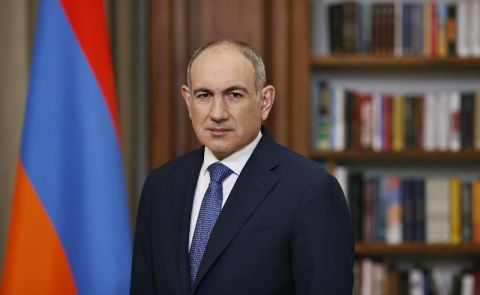
Covid-19 in Georgia: vaccination, lifting of certain restrictions and protests

On 1 February, certain restrictions were lifted in Georgia due to signs of an easing of the epidemiological situation in some of the country’s regions.
The lifted restrictions included: resumption of municipal transport in the cities of Batumi, Zugdidi, Gori, Poti and Telavi (except on weekends), opening of shops and shopping centres, resumption of in-person studies and the allowance for open spaces and open food facilities to receive guests (only in Adjara region). Regular flights from and to the country were also resumed.
It was also announced that the first doses of the Pfizer vaccines would arrive in the country by the end of the month. The Head of Georgia's National Centre for Disease Control Amiran Gamkrelidze said that the AstraZeneca vaccine would also be introduced in Georgia following Pfizer. “At the first stage, in the second half of February, probably after 15 February, we will receive the first doses of Pfizer vaccine. This will be 29,250 doses. As you know, it is done twice in 3-4 weeks. As per our vaccine introduction plan, the medical staff will be vaccinated in the first stage, however, not fully because the medical staff is much larger. Therefore, for the second phase, the medical staff will be fully covered,” he said. The Head of Georgia’s Infectious Diseases and AIDS Centre Tengiz Tsertsvadze said the reception of the first doses of the Pfizer vaccine would be 'the beginning of the end’ of the coronavirus pandemic.
The Asian Development Bank (ADB) also expressed their support for the Georgian government’s vaccination plan and offered to provide further support to the country. The plan covers legal, regulatory, and institutional aspects of vaccine deployment; cold-chain and logistical requirements; and the principles underpinning prioritisation for certain target populations during the rollout.
However, despite the lifting of restrictions and the initiation of the vaccination process, the Georgian business community expressed their discontent with the speed in which restrictions are being lifted. On 30 January, a protest was held with the participation of the representatives from various economic branches, claiming that restaurants, hotels and winter resorts would fail to recover unless the economy reopens as soon as possible. “The country has been stopped by now. Our demand is the simplest - just let us work,” stated the founder of the Georgian Restaurateurs Association Shota Burjanadze, adding that over 250,000 people employed in this sphere have remained jobless amid the restrictions. 200 restaurants in the country have stopped working as a sign of protest.
Georgia’s Prime Minister Giorgi Gakharia responded to the protester's demands, saying that the hasty opening of the economy would lead to further regulations and that maintaining balance is important. “I understand very well the situation of those companies, restaurants and hotels, but we have to strive for long-term results, and we have to do it together. Every person in this country has freedom of expression and is protected, of course, no one can restrict anyone from expressing their opinion. It is their right, their responsibility. It is our responsibility, together with restaurants and other entertainment establishments, to think about the health of our citizens and the long-term, sustainable opening of the economy,” he underscored.
In the past 24 hours, Georgia reported 240 new cases of the virus and 21 deaths, bringing the total tally to 258,351 cases and 3,194 deaths.
See Also


Armenia Strengthens Ties with Council of Europe

Former Armenian President Labels Pashinyan a Traitor and Blasphemer

Pashinyan Addresses Key Issues on Church, National Future, and Fund Allegations

Azerbaijan Calls for 'Dialogue and Diplomatic Resolution' Between Israel and Iran

